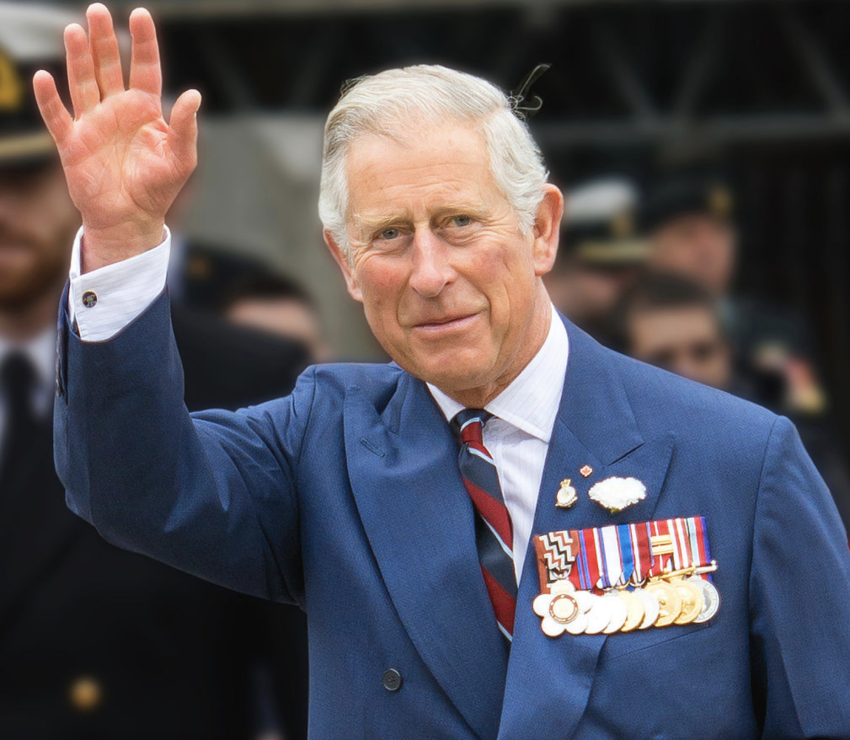One year after the Queen’s passing, the monarchy in Canada is less popular than ever, but what does it mean to become a republic?

King Charles (then Prince of Wales) visits Halifax, Nova Scotia in 2014. Photo by Korona Lacasse (via Wikimedia Commons).
King Charles III’s coronation on May 6 was marked by his dedication to the commonwealth nations, with Canada being a part of this union. However, the popularity of the Royal Family in Canada is dwindling, with one recent IPSOS poll indicating that over half of Canadians are at least somewhat in favour of severing Canada’s ties to the monarchy entirely. This raises the question: why does Canada maintain its relationship with the Royals?
As a British citizen, I find Canada’s continuation of the constitutional monarchy even more perplexing. In the United Kingdom, the Royal Family holds historical significance for our national identity.
Yet, even in my homeland, support for the monarchy is conflicted, especially among younger people. A YouGov survey released earlier this month revealed that 40 per cent of 18–24 year olds said that they would prefer an elected head of state. In Canada, the trend is even more pronounced; 57 per cent of those under age 35 agreed that Canada should cut its formal ties with the Crown, spelling out a precarious future for the constitutional monarchy.
Perhaps these figures come as no surprise, given the profound and harmful legacy of colonialism and slavery linked to the monarchy. For advocates of decolonization, maintaining the monarchy perpetuates the legacies of violence and injustice.
When Queen Elizabeth passed away, Terry Teegee, regional chief of the B.C. Assembly of First, commented on the ongoing difficulties between Indigenous peoples and the Royals in an interview with CTV. “We all know what had happened over the last 100 years with the residential school policy, also really genocidal policies such as the Indian Act and placing us on reserves and taking us off our lands,” said Teegee. The ongoing trauma of these events causes pain and anger for many.
Supporters of a republic may point to other commonwealth nations that have rid themselves of the Royals. Barbados is the most recent example, declaring full independence in November 2021. Following this, during a swearing-in for the new president, Sandra Mason, King Charles spoke of the “darkest days of our past and the appalling atrocity of slavery” that the island suffered.
The Caribbean nation’s decision to leave the commonwealth severs their ties with colonialism and the enslavement of millions at the hands of the British empire, allowing them to move beyond this painful history. Given Canada’s own past of colonization, one may wonder why we continue to pledge allegiance to a foreign monarch.
It’s worth noting that removing the monarch as the head of state could be far more complex for Canada than for some other commonwealth realms. As a nation comprising 10 provinces and three territories, the Canada of today is a constitutional monarchy, with King Charles III serving as head of state. The 1867 Constitution Act is a hugely important document which outlines the distribution of power in federal and provincial governments, establishing parliament.
To alter this foundational act would require unanimous agreement from all provinces and territories, the House of Commons, and the Senate. Some warn that changing the constitution could lead to extreme disorder and confusion, conjuring fear from provincial governments that they might have to surrender powers over to the federal government.
In addition, there are some Indigenous people who favour maintaining or rebuilding Canada’s ambivalent relationship with the monarchy. Though this requires accountability for the harms done. Sara Mainville, an Anishinaabe lawyer, said in 2022 that King Charles III “has a very important and special place in reconciliation.” Mainville highlighted that the treaties signed by Indigenous peoples in the century were not with the government, but with the Crown.
In a statement to the Guardian last year, Mainville said that the treaties represented a statement of trust that both nations could live side-by-side and breaking them could be “traumatic.”
Then there’s the question of who or what would replace the monarchy. Electing a president, as in the United States, puts faith in the people to choose their own democratic leader. Retaining a system of checks and balances is crucial to prevent unbidden power from a single elected official.
The current system in Canada requires the appointment of a Governor General, who represents the monarch in Canada and serves as a non-partisan voice that keeps parliamentary leaders accountable. The current Governor General, Inuk leader Mary Simon, is the 30th person to hold this role, and the first Indigenous individual to do so.
Though the role is largely ceremonial, the Governor General retains the power to dissolve parliament, and is (in theory) holding the Prime Minister to account for their actions. Keeping this position is a safeguard for our democracy.
If we behead the nation and sever Canada’s ties with the monarchy, we need a better alternative that accommodates the needs of all provinces and territories. Maybe this includes a democratically elected head of state who represents all Canadians.
Is this just a pipe dream? Perhaps, but it’s one that deserves some royal consideration.






